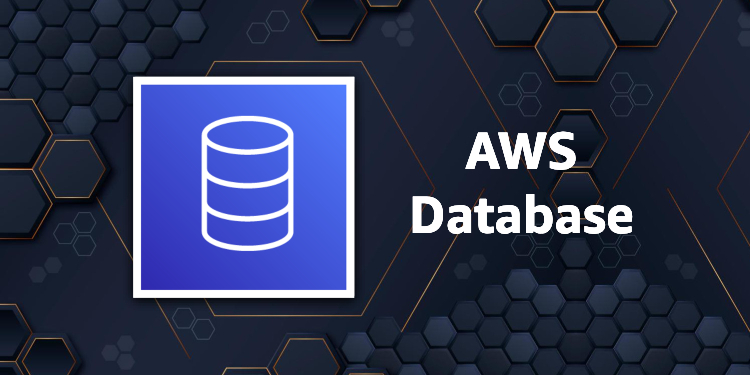
MMS • RSS
Posted on nosqlgooglealerts. Visit nosqlgooglealerts

As businesses are increasingly relying on data to drive their decision-making process, there has been a surge in data-intensive applications. This necessitates robust and scalable databases that can efficiently manage large quantities of data, support highly-available and performant applications and provide real-time analysis and insights. AWS provides a suite of cloud-based database solutions that offer organizations of all sizes, the flexibility, scalability and reliability required to manage their data effectively.
AWS Database Options
AWS offers a variety of database solutions which can be classified into two categories, Relational Database Services (RDS) and NoSQL Databases.
Relational Database Services (RDS)
RDS is a cloud-based relational database service that makes it easy to set up, operate, and scale a relational database. RDS automates time-consuming administrative tasks whether they are typical maintenance, backups or patching. RDS supports multiple relational database engines such as MySQL, PostgreSQL, Microsoft SQL Server, Oracle, and Aurora. RDS provides the following benefits:
Ease of Use and Management: RDS simplifies the setup of a relational database by automating the deployment, scaling and maintenance of the infrastructure. RDS takes care of all administrative tasks such as patching, backing up, and monitoring.
Scalability: With RDS, you can gracefully scale vertically or horizontally, depending on your needs. Vertical scaling allows you to add more compute and memory resources, whereas horizontal scaling enables you to add more nodes to the cluster.
High Availability: RDS provides multiple features, including automated backups, snapshots, and replicas. These enable you to recover data easily in the event of a disaster.
NoSQL Databases
NoSQL databases provide a flexible and scalable database solution that can handle a huge amount of structured and unstructured data. NoSQL databases are often a preferred choice for applications such as e-commerce, content management systems, social media sites, and IoT. AWS provides two databases that fit under this category; Amazon DynamoDB and Amazon DocumentDB.
Amazon DynamoDB: Amazon DynamoDB is a fully-managed, highly scalable, and secure NoSQL database that supports both document and key-value data models. DynamoDB is designed to deliver fast, predictable performance for applications that need to handle large amounts of data and requests throughput. DynamoDB provides the following benefits:
• Security – DynamoDB is secure by default, providing automatic data encryption at rest and in transit.
• Scalability – DynamoDB is highly scalable and can handle requests up to millions per second.
• Performance – DynamoDB offers predictable sub-millisecond latency for reads and writes.
• Integration – DynamoDB has built-in integrations with some of the most popular AWS services, such as AWS Lambda.
Amazon DocumentDB: Amazon DocumentDB is a fully-managed, highly available, and scalable document database. DocumentDB is compatible with MongoDB, which makes it an ideal choice for migrating an existing MongoDB application to the cloud. DocumentDB provides the following benefits:
• Highly Scalable – DocumentDB can horizontally scale up to petabytes of data and millions of reads and writes per second.
• Fully Managed – AWS manages the operational aspects of DocumentDB such as patching, backups, and failover.
• Compatibility with MongoDB – DocumentDB is fully compatible with MongoDB, including the query language, indexes, and drivers. This makes the migration of MongoDB-based applications to DocumentDB a seamless process.
Use Cases for AWS Databases
Organizations choose different databases depending on their specific needs and applications. Below are some common use cases of AWS databases:
Content Management Systems and eCommerce: The ultimate goal of content management systems and eCommerce sites is to provide a personalized experience to the user. For that reason, they require databases that can scale to meet the demands of a growing user base. A good database solution for these applications is Amazon Aurora, which is specifically designed for high availability and performance.
Online Gaming: Online gaming applications require databases that are highly available, fast, and scalable. These requirements can be achieved by using Elasticache and DynamoDB, which are designed for high throughput and low latency.
Analytics and Big Data: Applications that require big data processing capabilities, such as data warehousing and business intelligence, need databases that can scale easily to handle massive amounts of data. Amazon Redshift provides extremely fast data ingestion and querying for large data sets, hence it’s a popular choice for big data processing use cases.
In conclusion, AWS has plenty of database services that are ideal for various use cases. AWS offers fully-managed, flexible and reliable database solutions that enable organizations to manage their data effectively. With AWS, you can easily deploy relational and non-relational databases that deliver the performance, security, scalability, and availability you need. With the variety of database solutions offered by AWS, organizations of all sizes and tech know-how, can choose the best database service for their specific needs and requirements.